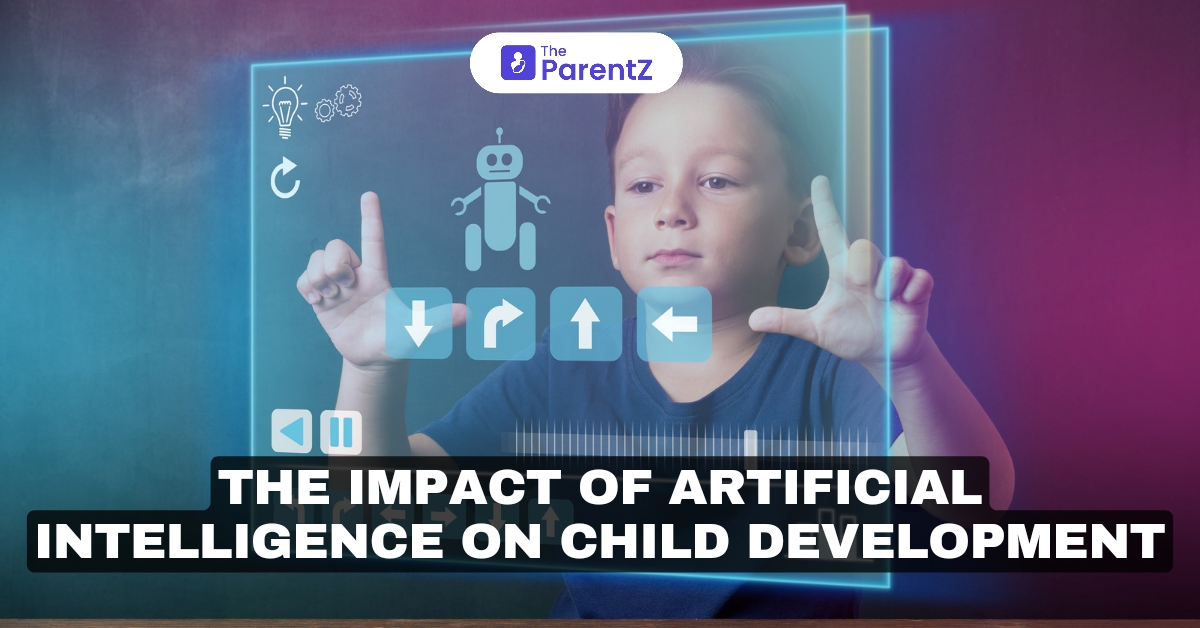Artificial Intelligence (AI) is becoming increasingly integrated into the daily lives of children, influencing how they learn, interact, and develop. From personalized educational tools to AI companions, the presence of AI in children's environments is reshaping their experiences in profound ways. While AI offers numerous benefits, it also raises important concerns regarding child development. This article explores the impact of AI on child development by examining its role in educational tools, challenges to social and emotional development, data privacy concerns, and the importance of balancing AI with human interaction.
AI in Educational Tools
AI-powered educational tools are transforming the learning landscape for children. These tools can enhance learning experiences through personalized education, which tailors content to meet individual needs.
- Personalized Learning: AI can analyze a child's learning patterns and adapt lessons accordingly. For instance, platforms like Khan Academy use AI algorithms to provide customized exercises that target areas where a child may struggle. This personalized approach can lead to improved academic performance and increased engagement.
- Tutoring Apps: AI-driven tutoring applications offer on-demand assistance to students, allowing them to learn at their own pace. These apps can provide instant feedback and explanations, helping children grasp complex concepts more effectively.
- Cognitive Benefits: Interactive AI systems can stimulate cognitive development by encouraging critical thinking and problem-solving skills. Engaging with these tools can foster curiosity and creativity in children as they explore new subjects.
Social and Emotional Development Challenges
Despite the advantages of AI in education, there are significant challenges related to children's social and emotional development.
- Reduction of Human Interaction: The increasing reliance on AI tools may lead to decreased human interaction in learning environments. Children who engage primarily with machines may miss out on essential social skills that are developed through face-to-face interactions with peers and educators.
- AI Companions and Chatbots: While AI companions can provide companionship and support, they may not adequately fulfill the emotional needs that human relationships offer. Relying on chatbots for social interaction could hinder children's ability to form meaningful connections with others.
- Impact on Emotional Intelligence: The lack of real human interaction may impede the development of emotional intelligence in children. Skills such as empathy, conflict resolution, and non-verbal communication are best learned through direct engagement with others.
AI and Data Privacy Concerns
As AI becomes more prevalent in children's lives, concerns regarding data privacy and ethical considerations have emerged.
- Data Collection: Many AI tools collect data on children's behaviors, preferences, and learning patterns. This information can be valuable for personalizing experiences but also raises questions about how this data is stored, used, and shared.
- Privacy Issues: Parents must be vigilant about the privacy policies of AI-powered applications. Understanding how companies handle data is crucial for ensuring children's safety online. Parents should choose platforms that prioritize data protection and transparency.
- Ensuring Online Safety: To safeguard their children’s online experiences with AI tools, parents should educate their children about digital literacy and responsible internet use. Teaching children about privacy settings and potential risks associated with sharing personal information is essential for their safety.
Balancing AI with Human Interaction
To maximize the benefits of AI while minimizing its drawbacks, it is essential to strike a balance between technology use and human interaction.
- Encouraging Human-Led Learning: Parents should promote activities that involve direct human interaction alongside the use of AI tools. Group projects, collaborative learning experiences, and family discussions can foster critical social skills that technology cannot replicate.
- Enhancing Human Connection: It’s important for parents to model healthy technology habits by engaging in tech-free family time. Establishing routines that prioritize face-to-face interactions can help reinforce the importance of human connection in children's lives.
- Integrating Technology Mindfully: When incorporating AI into children's learning experiences, parents should be intentional about its use. Setting limits on screen time and encouraging breaks from technology can help maintain a healthy balance between digital engagement and real-world interactions.
Conclusion
The impact of artificial intelligence on child development is multifaceted, offering both opportunities for enhanced learning and challenges related to social-emotional growth. While AI-powered tools have the potential to personalize education and improve cognitive skills, they also raise concerns about reduced human interaction and data privacy issues. To ensure that children benefit from AI without compromising their development, parents must actively engage in managing their children's interactions with technology. By fostering a balanced approach that prioritizes both AI-enhanced learning and meaningful human connections, families can navigate this evolving landscape effectively.








Be the first one to comment on this story.